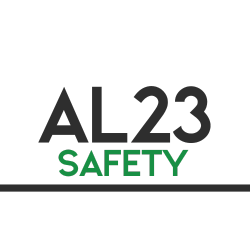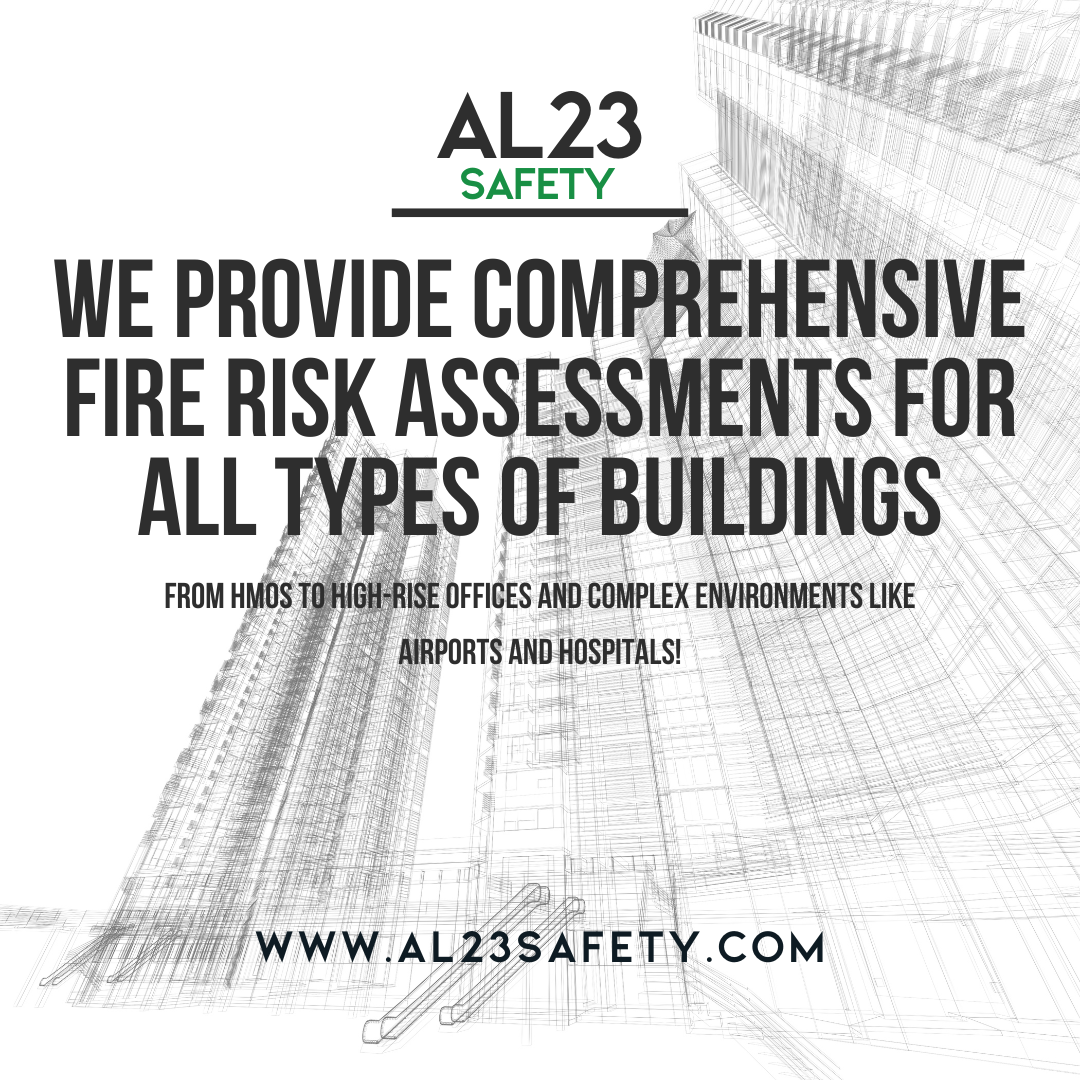Fire safety regulations are the bedrock of protecting lives, property, and businesses across the UK, yet ignoring them can unleash catastrophic repercussions. The recent Watlington case involving the former owner of House of Spice Indian restaurant serves as a harrowing cautionary tale, highlighting how breaches in fire safety regulations can lead to suspended prison sentences, crippling fines, and immediate shutdowns. On 15 September 2025, at Oxford Crown Court, Mr Khalique Choudhury was sentenced to a six-month custodial term suspended for 18 months, fined £1,700, and ordered to complete 100 hours of unpaid work following guilty pleas to four charges under the Regulatory Reform (Fire Safety) Order 2005.
At AL23 Safety, we witness far too many businesses facing such dire outcomes due to neglect. This blog uncovers five shocking consequences of ignoring fire safety regulations, draws vital lessons from the Watlington incident, and outlines how to achieve robust fire safety compliance through expert support.
The Watlington Restaurant Case: A Wake-Up Call for Business Fire Safety
In March 2024, fire safety inspectors from Oxfordshire County Council’s fire and rescue service descended upon the House of Spice in Couching Street, Watlington, uncovering a litany of violations that endangered staff and patrons alike. The premises lacked a working fire alarm and detection system, escape routes were obstructed and unprotected, and there was no adequate fire risk assessment in place. Compounding the danger, staff accommodation above the restaurant was deemed so hazardous that a Prohibition Notice was issued immediately, forcing the evacuation of sleeping quarters.
Mr Choudhury’s failure to address these critical elements under fire safety regulations not only risked lives but also triggered a swift legal response. Convicted at Oxford Magistrates’ Court on 24 July 2025, his sentencing at Crown Court underscored the zero-tolerance stance of authorities. Councillor Jenny Hannaby, Oxfordshire County Council’s Cabinet Member for Communities, emphasised: “The vast majority of businesses in Oxfordshire take their responsibilities seriously, but we will not tolerate those who put lives at risk through negligence.” This case exemplifies the real-world perils of lax business fire safety practices, serving as a stark reminder that compliance is non-negotiable.
5 Shocking Consequences of Ignoring Fire Safety Regulations
Breaching fire regulations isn’t just a paperwork oversight, it’s a gamble with devastating fallout. Here are five profound consequences that no business can afford:
- Legal Penalties and Fines: Non-compliance often results in hefty financial hits. In the Watlington case, Mr Choudhury faced a £1,700 fine alongside his suspended sentence, but costs can escalate into tens or hundreds of thousands for larger breaches. Under the Regulatory Reform (Fire Safety) Order 2005, courts can impose unlimited fines, draining resources needed for growth.
- Suspended or Actual Imprisonment: For egregious violations, prison time looms large. Mr Choudhury’s six-month suspended sentence could have become reality with further non-compliance, and in severe cases, immediate incarceration awaits, tarnishing reputations irreparably.
- Immediate Operational Shutdowns: Prohibition Notices can halt business overnight. The Watlington restaurant’s upper floors were barred from use, disrupting operations and revenue streams until rectified, a nightmare for any hospitality venue reliant on steady footfall.
- Endangerment of Lives and Injuries: The human cost is incalculable. Without proper fire detection or clear escape routes, a small spark can become a tragedy. The Watlington breaches directly imperilled staff living onsite and diners below, potentially leading to fatalities or life-altering injuries.
- Reputational Damage and Insurance Nightmares: Public scandals erode trust. Post-sentencing coverage in local media like the Henley Standard amplified the House of Spice’s woes, deterring customers and complicating insurance renewals with skyrocketing premiums or outright denials.
These consequences ripple far beyond the courtroom, threatening business viability and ethical standing.
Navigating Fire Regulations: Legal Obligations Explained
At the heart of fire safety compliance lies the Regulatory Reform (Fire Safety) Order 2005, which mandates that responsible persons, typically business owners undertake comprehensive fire risk assessments, install reliable detection systems, and safeguard escape routes. This legislation applies universally to non-domestic premises, from cosy restaurants to sprawling offices, requiring proactive measures to identify hazards and mitigate risks.
In the Watlington scenario, the absence of these basics, no fire risk assessments, faulty alarms, and blocked exits violated core tenets, prompting enforcement. Businesses must also provide staff training, maintain records, and review strategies annually or after changes like renovations. Ignoring these safety regulations invites scrutiny from local fire authorities, who wield powers from advisory visits to prosecutions.
The Vital Role of Fire Risk Assessments in Compliance
Fire risk assessments are the linchpin of fire safety regulations, offering a structured blueprint to spot dangers like flammable materials or poor ventilation. The process involves evaluating who might be at risk, implementing controls such as fire doors and extinguishers, and recording actions taken. In Watlington, a simple assessment could have flagged the accommodation risks, averting the crisis.
Regular audits ensure ongoing fire safety compliance, adapting to evolving threats. For hospitality businesses, this means assessing kitchen hazards alongside guest areas. By prioritising fire risk assessments, owners not only meet legal duties but also cultivate resilience against unforeseen fires.
Benefits of Proactive Fire Safety Compliance
Embracing fire safety regulations yields dividends beyond mere avoidance of penalties. Compliant businesses enjoy enhanced reputations, as customers favour venues that prioritise welfare, a boon in competitive sectors like hospitality. Reduced liabilities translate to stable insurance costs, freeing capital for innovation.
Moreover, a safety-first ethos boosts employee morale and retention, minimising downtime from incidents. The Watlington case contrasts sharply with compliant peers in Oxfordshire, who Councillor Hannaby praised for their diligence. Ultimately, investing in fire safety compliance safeguards futures, turning potential disasters into testimonials of responsibility.
How AL23 Safety Can Shield Your Business from Fire Safety Pitfalls
At AL23 Safety, we transform daunting fire safety regulations into manageable strategies. Our expert team conducts bespoke fire risk assessments, designs tailored compliance plans, and delivers hands-on training to empower your staff. Whether auditing escape routes or installing advanced detection systems, we ensure seamless adherence to the Regulatory Reform (Fire Safety) Order 2005.
Drawing from cases like Watlington, we emphasise prevention: comprehensive site surveys, remedial recommendations, and follow-up support to maintain business fire safety standards. Our clients avoid the shocking consequences of ignoring fire safety by partnering with us for proactive, cost-effective solutions.
Act Now: Avoid the Watlington Fate
The Watlington restaurant’s downfall is a potent warning ignoring fire safety regulations invites ruin. Business owners must act decisively: commission fire risk assessments, train teams, and embed compliance into operations. Delaying only amplifies risks in an era of heightened scrutiny.
Contact AL23 Safety today for a complimentary consultation. Visit our website to explore services that fortify your premises against breaches, ensuring a secure, thriving environment. Let’s collaborate to make fire safety regulations your strongest ally, not your undoing.



